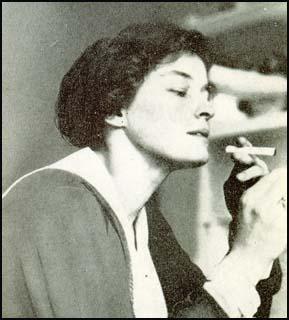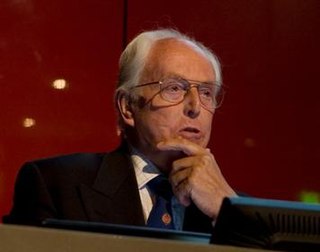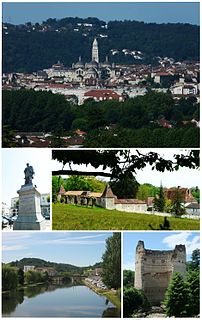Biography
Born in London, the nephew of the actor Edward Chapman, his father was an engineer. He trained at the RADA, and made his acting debut in Enid Bagnold's National Velvet in 1946. [1]

Edward Chapman was an English actor who starred in many films and television programmes, but is chiefly remembered as "Mr. Wilfred Grimsdale", the officious superior and comic foil to Norman Wisdom's character of Pitkin in many of his films from the late 1950s and 1960s.

The Royal Academy of Dramatic Art (RADA) is a drama school in London, England that provides training for film, television and theatre. It is one of the oldest and most prestigious drama schools in the United Kingdom, founded in 1904 by Herbert Beerbohm Tree.

Enid Algerine, Lady Jones, was a British author and playwright, known for the 1935 story National Velvet.
Initially a stage manager and understudy at the Whitehall Theatre for the first two years of Reluctant Heroes, the first Whitehall farce, he subsequently spent a few years in weekly rep before returning to Brian Rix's company with his first play. Dry Rot (1954), which is about dishonest bookmakers, had a four-year run with 1,475 performances. [1] Ray Cooney joined the cast in 1956 and first met the author at this time. Chapman followed Dry Rot with Simple Spymen (1958), [2] which was staged 1,404 times [1] over a three-year run.

Trafalgar Studios, formerly the Whitehall Theatre until 2004, is a West End theatre in Whitehall, near Trafalgar Square, in the City of Westminster, London.

The Whitehall farces were a series of five long-running comic stage plays at the Whitehall Theatre in London, presented by the actor-manager Brian Rix, in the 1950s and 1960s. They were in the low comedy tradition of British farce, following the Aldwych farces, which played at the Aldwych Theatre between 1924 and 1933.

Brian Norman Roger Rix, Baron Rix, was an English actor-manager, who produced a record-breaking sequence of long-running farces on the London stage, including Dry Rot, Simple Spymen and One for the Pot. His one-night TV shows made him the joint-highest paid star on the BBC. He often worked with his wife Elspet Gray and his sister Sheila Mercier, who went on to feature regularly in Emmerdale Farm.
Before the production of Simple Spymen closed, Chapman and Cooney had begun their collaboration. Together they wrote Not Now, Darling (1967, which Chapman adapted for the film version), Move Over Mrs. Markham (1968), My Giddy Aunt (1968) and There Goes the Bride (1973). [3] Meanwhile, he also wrote extensively for television including episodes of the sitcoms Hugh and I (1962-5) and Happy Ever After (1974-77), both of which were BBC vehicles for Terry Scott. Fresh Fields (1984–86), for Thames Television, featured Anton Rodgers and Julia McKenzie in the leads.
Not Now is a 1967 farce written by English playwrights John Chapman and Ray Cooney, first staged at the Richmond Theatre, in Richmond, England prior to a long West End run starring Donald Sinden and Bernard Cribbins, with Jill Melford, Mary Kenton, Brian Wilde, Carmel McSharry and Ann Sidney.
Hugh and I is a black-and-white British sitcom that aired from 1962 to 1967. It starred Terry Scott and Hugh Lloyd as two friends who shared lodgings with Terry's mother and was followed by a sequel called Hugh and I Spy. Previously, the two actors had worked together on stage for many years.
Happy Ever After is a British sitcom starring Terry Scott and June Whitfield. It aired from 7 May 1974 to 25 April 1979.
Chapman was married to actress Betty Impey, from Whitehall and they had four children, Mark, Adam, Justin and Guy (who died when he was young). Chapman died in Périgueux, France on 3 September 2001, aged 74.
This page is based on this
Wikipedia article Text is available under the
CC BY-SA 4.0 license; additional terms may apply.
Images, videos and audio are available under their respective licenses.








